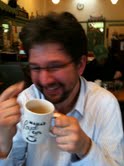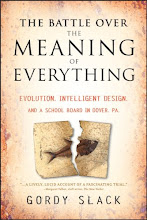 |
| Henry Gustav Molaison |
So many big moments in the history of neuroscience are the products of efforts to understand or treat epilepsy. Look for instance at this fine
recent story by Mo Costandi in the Guardian memorializing one of the most important figures in the field, a man who for decades was known simply as HM. Henry Molaison (whose full name was only released upon his death two years ago) had been dogged by seizures since childhood and was so desperate to shake them that, in 1953, he agreed to have his hippocampus removed. His surgeon knew HM's seizures were originating there, but no one knew what the side effects would be. The surgery had its intended effect; his seizures were reduced from dozens a year to about two. But in exchange for that gain, he lost the ability to make new memories, a condition known as severe anterograde amnesia.
The main character in
Memento, the excellent movie about an amnesiac driven to keep progressing into the future by preserving his past with Post-Its, annotated Polaroids, and tattoos, was purportedly modeled after Molaison.
Before Molaison, most neuroscientists believed memory to be distributed all through the brain. The first paper about the case, published by Molaison's surgeon, William Beecher Scoville, and neuroscientist Brenda Milner (both at the Montreal Neurological Institute) showed that though even without his hippocampus Molaison could still retain small amounts of information for short periods of time, he couldn't store them anywhere before they were supplanted by new ones. This suggested, for the first time, that memory has distinct long- and short-term components. Memory research has never been the same, and today no one doubts the central role of that weird little seahorse-shaped part of the limbic system known as the
hippocampus in creating and quickening new memories; it is now arguably the most intensively studied part of the brain.
Molaison died two years ago, at 82, but his brain (still being studied at the
Brain Observatory UC San Diego) is still revealing secrets about the nature of memory and what makes it work--and cease working.
It's hard to say where memory research would be today if it weren't for Molaison and his epilepsy; possibly decades behind where it is now. Let's not forget him...or the many other courageous and generous patients with epilepsy who shed so much light on this field.



